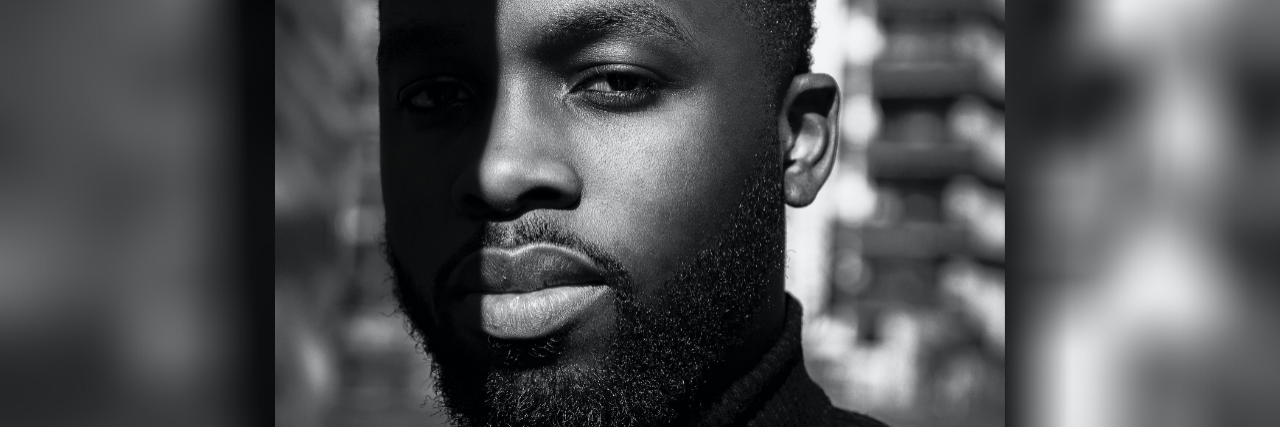Hold Me (and Kanye West) Accountable for Bipolar Disorder, but Don’t Shame Us
This fall will mark two years since my first and only manic episode. Similar to Kanye West earlier in 2018, my social media posts sparked controversy, incensed followers and loved ones, and were seen as evidence of someone going through a mental breakdown. I’ve fortunately been on a treatment plan that includes pills, healthy-ish eating habits, morning walks and sleep. If I don’t get sleep, I could end up in Los Angeles, Orlando or Costa Rica again, and at a moment’s notice. I’d be untraceable, leaving my loved ones to suffer and endure the anxiety of uncertainty. Worst case scenario: I could end up dead.
• What is Bipolar disorder?
This disorder is reckless. It ravages the mind and almost similarly destroys relationships.
For those with more influence, like Kanye, the damage is far greater. Recently, my heart has rebroken as Kanye has returned with viral and incendiary messaging. Those who’ve witnessed this have shared their disgust, criticisms and have sought to cleanse their timelines of any trace of the hip-hop mogul. While I don’t blame them, and while their anger may be valid, I think we need to pause to consider the fine line between holding someone accountable and shaming them.
Kim Kardashian penned a touching three-part Instagram story in July and shared: “We as a society talk about giving grace to the issue of mental health as a whole, however, we should also give it to the individuals living with it in times when they need it most.” On one hand, this can be perceived as a performative attempt to absolve a celebrity of their transgressions. But, we’re more intelligent than to be so reductive. We have the capacity to hold space for opposing ideas and conflicting emotions.
We can scrutinize Kanye’s harmful remarks and lament over the impact this has had for his family while grieving the person we once knew and recognized. We have the ability to view his behavior as unhealthy while being upset that he doesn’t appear to be doing more to heal and rehabilitate. I wish Kanye would get the help he needs, but as someone who is living with bipolar disorder, I know this has to be a personal decision.
For me, I chose to apologize to those I’ve hurt, to be intentional about processing my trauma, and to be uncomfortable enough to change my habits.
There were darker parts of my journey that took place in the first few months of my rehabilitation. I’d received hurtful messages from people that said “you’ll never be forgiven” and “we’re all waiting to see if we can trust you again.” Outside of the anger I felt at these unsolicited sweeping generalizations and judgments, the shame cut deeper. Eventually, I convinced myself that the world would be better off without me because I was unredeemable. Surely, I was too broken, too unworthy.
I hated who I was and began to distrust myself. I was hopeless. All this, in addition to waking up each day to the depression that often follows a manic episode. Every moment was walking through mud and getting to the next breath. My two greatest resources were my faith and therapy — my faith to remind me of my inherent worth, and therapy that helps to ground me and be in the moment. I became a researcher into my own illness and shortcomings and learned to dispel false truths I’d believed. I slowly returned to the dignity and self-respect I’d once had, this time, greater and full.
Thankfully, I’ve received gentle accountability from those I trust. They’ve been able to name the ways in which I’ve hurt them, to call me in when I’m doing something unhealthy, and still be there to give me grace along the way. There’s a lot of gray in this, dealing with other humans is never easy, especially when you care for them.
And, so as we continue to watch Kanye’s story unfold, or that of anyone whose life we follow, we need to remember too that shaming is saying “you are bad/vile/unworthy” and holding someone accountable is saying “what you did was horrific, but I’m here to help you do better if you’re willing to do the work.” We get to acknowledge that mental health can impact someone’s behavior and that this acknowledgment is not an excuse, but simply more information.
Photo by Justin Essah on Unsplash

